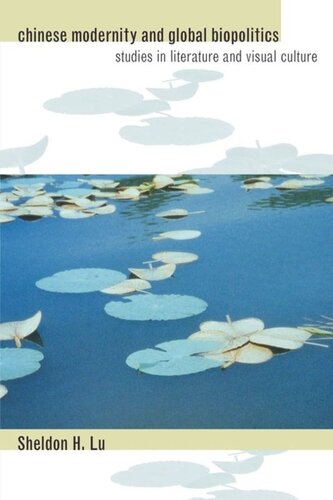

Most ebook files are in PDF format, so you can easily read them using various software such as Foxit Reader or directly on the Google Chrome browser.
Some ebook files are released by publishers in other formats such as .awz, .mobi, .epub, .fb2, etc. You may need to install specific software to read these formats on mobile/PC, such as Calibre.
Please read the tutorial at this link: https://ebookbell.com/faq
We offer FREE conversion to the popular formats you request; however, this may take some time. Therefore, right after payment, please email us, and we will try to provide the service as quickly as possible.
For some exceptional file formats or broken links (if any), please refrain from opening any disputes. Instead, email us first, and we will try to assist within a maximum of 6 hours.
EbookBell Team

4.3
8 reviewsThis ambitious work is a multimedia, interdisciplinary study of Chinese modernity in the context of globalization from the late nineteenth century to the present. Sheldon Lu draws on Chinese literature, film, art, photography, and video to broadly map the emergence of modern China in relation to the capitalist world-system in the economic, social, and political realms. Central to his study is the investigation of biopower and body politics, namely, the experience of globalization on a personal level.
Lu first outlines the trajectory of the body in modern Chinese literature by focusing on the adventures, pleasures, and sufferings of the male (and female) body in the writings of selected authors. He then turns to avant-garde and performance art, tackling the physical self more directly through a consideration of work that takes the body as its very theme, material, and medium. In an exploration of mass visual culture, Lu analyzes artistic reactions to the multiple, uneven effects of globalization and modernization on both the physical landscape of China and the interior psyche of its citizens. This is followed by an inquiry into contemporary Chinese urban space in popular cinema and experimental photography and art. Examples are offered that capture the daily lives of contemporary Chinese as they struggle to make the transition from the vanishing space of the socialist lifestyle to the new capitalist economy of commodities. Lu reexamines the history and implications of China’s belated integration into the capitalist world system before closing with a postscript that traces the genealogy of the term "postsocialism" and points to the real relevance of the idea for the investigation of everyday life in China in the twenty-first century.